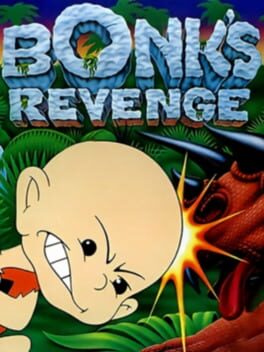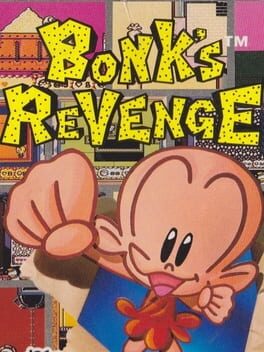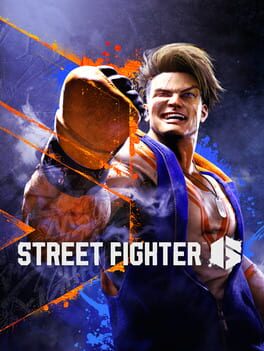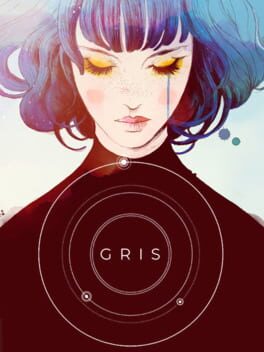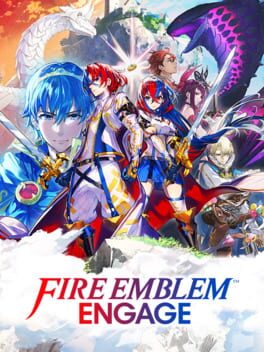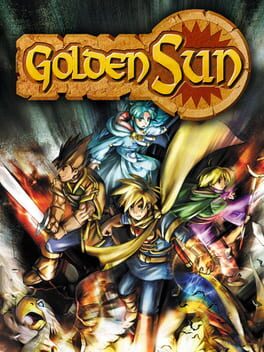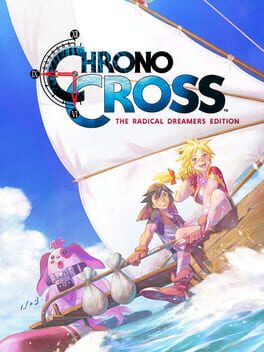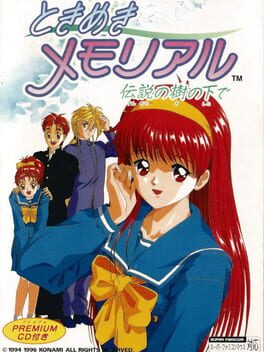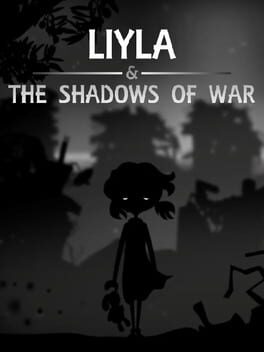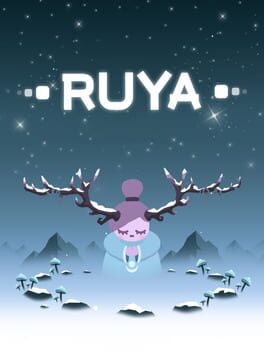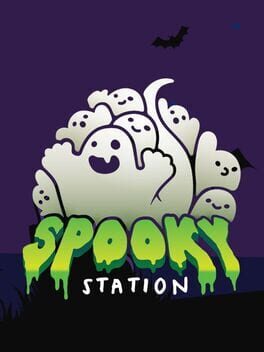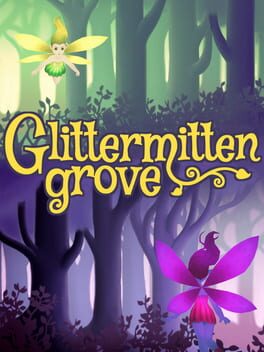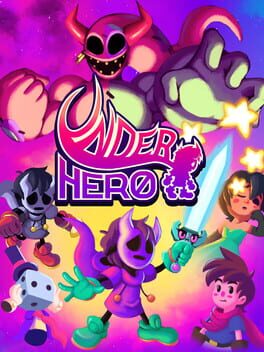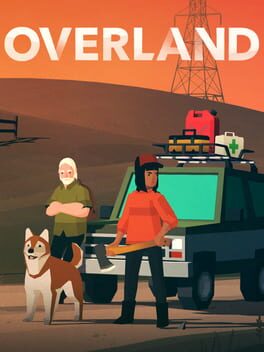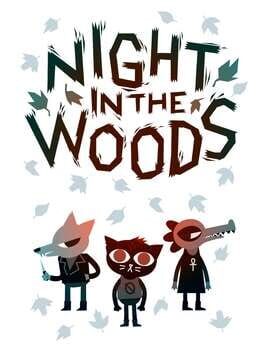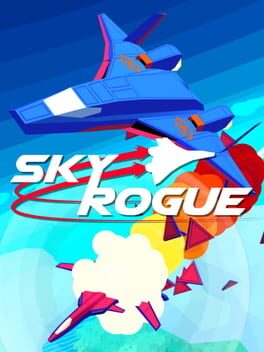parosilience
14 reviews liked by parosilience
The more of this I play, the more I realize this is an un-reviewable video game.
The emotional equivalent of the coolest, nicest, hottest people you know asking you to help them move and paying you with pizza. Rebirth has some of the most satisfying real time RPG combat with one of the best ensembles in video game history-- all shoved into a bizarrely designed approximation of a "modern" open-world game.
Reflecting on FF7's world map, the openness was more of a feeling than literal design. It wasn't until you got the Highwind near the finale of the original game that you could actually go anywhere you wanted.
Rebirth, ironically, is best when it's on the rails. There are some fun side quests here and there, but there is so much fluff that it genuinely feels like half of the world map activities were designed out of spite.
Ultimately, I am such an unabashed FF7 fan that even if part three is complete garbage, I will still be grateful that this remake trilogy exists. The characters all feel like fully realized versions of themselves, and there are moments of Rebirth that are high points for Final Fantasy overall. It's just a shame that somewhere within Square Enix they felt that a 10/10 story-driven linear action game needed to be shoved into another genre that doesn't feel built around Rebirth's strengths.
The emotional equivalent of the coolest, nicest, hottest people you know asking you to help them move and paying you with pizza. Rebirth has some of the most satisfying real time RPG combat with one of the best ensembles in video game history-- all shoved into a bizarrely designed approximation of a "modern" open-world game.
Reflecting on FF7's world map, the openness was more of a feeling than literal design. It wasn't until you got the Highwind near the finale of the original game that you could actually go anywhere you wanted.
Rebirth, ironically, is best when it's on the rails. There are some fun side quests here and there, but there is so much fluff that it genuinely feels like half of the world map activities were designed out of spite.
Ultimately, I am such an unabashed FF7 fan that even if part three is complete garbage, I will still be grateful that this remake trilogy exists. The characters all feel like fully realized versions of themselves, and there are moments of Rebirth that are high points for Final Fantasy overall. It's just a shame that somewhere within Square Enix they felt that a 10/10 story-driven linear action game needed to be shoved into another genre that doesn't feel built around Rebirth's strengths.
Bonk's Revenge
1991
Huge downgrade from the 1st game aside from the colors and graphics. Level design wasn't as fun or interesting, most of the new music was annoying, and the bosses weren't as good.
Also Bonk doesn't exactly control great, which was fine in the first game cause they never really asked much from the player, but goddamn here some of the enemy placements drove me insane.
Here's hoping Bonk 3 steers the ship back in a good direction cause I enjoyed that first game.
Also Bonk doesn't exactly control great, which was fine in the first game cause they never really asked much from the player, but goddamn here some of the enemy placements drove me insane.
Here's hoping Bonk 3 steers the ship back in a good direction cause I enjoyed that first game.
Bonk's Revenge
1994
Really really fucking glad I tried the Game Boy Bonk games. I was convinced they were just ports but they're completely new games.
And they're good ones! This one goes a step further from the first GB game and makes Bonk control even better. Everything else I said still applies to this game, as well. Except this game has slightly better boss fights and worse bonus levels (there's only one bonus level)
Play these games. They're short but very fun platformers.
And they're good ones! This one goes a step further from the first GB game and makes Bonk control even better. Everything else I said still applies to this game, as well. Except this game has slightly better boss fights and worse bonus levels (there's only one bonus level)
Play these games. They're short but very fun platformers.
Street Fighter 6
2023
Gris
2018
Super beautiful and cute lil game. The platforming and puzzles were simple but enough to keep me engaged. I’m not super into these kind of games usually, I usually like indie games like this to have a little more meat like hollow knight but that’s really not what it’s going for and thats fine.
Of course the best thing about this game was the animation/art direction and music. My favorite sections was the evil goop monster chase sequences. The underwater eel one was particularly thrilling.
I would super recommend this if you want a quick easy game to relax and enjoy. A very pleasant experience for me.
Also I love gris girl’s cube form. It is very chonk and cute
Of course the best thing about this game was the animation/art direction and music. My favorite sections was the evil goop monster chase sequences. The underwater eel one was particularly thrilling.
I would super recommend this if you want a quick easy game to relax and enjoy. A very pleasant experience for me.
Also I love gris girl’s cube form. It is very chonk and cute
Fire Emblem Engage
2023
For better or worse, Fire Emblem is a formative part of who I am. The works we choose to Engage™ with in our youth tends to form a basis of our media literacy and in which initial appreciation for art stems. The ideas and themes we are first exposed to are inherently novel after all. With little else to compare with, these stories are earnestly received as they are indulged in. We have yet to form the necessary experiences to be critical, let alone know of contempt. And so, we view these early works that we are exposed to undeservedly favourably. This insidious phenomenon that retroactively becomes seen as nostalgia is something I must overcome! I like to think I have grown much since my youth. I can do it now! I am strong enough! It is time for me to condemn the naive joys of my past and see them as what they truly are so that I may live solely in the present. I will not shy away at the edge of dawn. It is time to destroy Fire Emblem, this puppy love of mine. This latest entry shall serve as a perfect target of my ire.
However, before I can get to condemning Engage™, there is necessary context that must be considered. It is not just a standalone iterative sequel after all. It is the celebratory title! It would seek to present itself as the ultimate culmination of an anthology. A statement of the series in its whole. The final destination of a long journey. If it dares to lay claim to such lofty dominion, then it elicits proper scrutiny. We will not just judge Fire Emblem Engage™ by what it is, but also, on what it isn’t. What it could have been. What it SHOULD have been!
Fire Emblem history, to me, is comprised of three distinct eras. The ‘Kaga Saga’, the first of which, having a particularly distinctive creative direction. Serving as the foundational ethos for all the future games to come, these early games were experimental in nature. More willing than most to utilise the unique qualities of videogames as a medium to tell its stories. Most infamously, Fire Emblem sought to embed a real sense of loss into its players by having characters permanently die should they fall during gameplay. That these characters with unique face, motivations and statistical significance would live and die through your hand was meant to instill a personal connection with Fire Emblem’s world. Such means of connection being only feasible through this uniquely dynamic aspect of video games.
And so, Fire Emblem was initially conceived to be a series about using games as a means of storytelling. A cohesive blend of gameplay with a narrative it wished to convey.
I have not played any of those games from that era. I am a fake fan, a poser, a revisionist. There is much to discuss of these entries that I have not the capacity or experience to do so. Instead, the games that I will elaborate upon comprise the second of these three Fire Emblem eras. That which I shall dub as the era of ‘Sanitation’. You see, that previous visionary ethos of character death was too successful. Most players were found unwilling to see the characters in which they are made to feel responsible for die, and instead of Engaging™ with this creative vision, would simply reset chapters until everyone survived. Creative intent clashed with the reality of a player’s actions. As these games had the ultimate purpose of seeking commercial success over making artistic statements, concessions were made to make the design of these games more tailored for the preferences of its general audience.
Yet even after the sanitation that ensued, alternative creative avenues were still sought to be explored, and though dulled, much remained of the original design philosophies post transition. Permadeath was kept, but instead of being a vestigial idea that players ignored, was retained explicitly because it was expected players would seek to circumvent it. If players were unwilling to let these previously expendable characters die, then why not encourage this behaviour? And so, these side characters became more integral and more significant within their stories. Fire Emblem was revised and recontextualized to be a series about the bonds we cultivate. This change of perspective inspired the most formative feature of this second generation, the support system.
Young me was enamoured by this concept! This method of storytelling I indulged in with earnestly, novel to me then as it was. Each character no matter how seemingly humble or insignificant would be given unique characterization through multiple conversations with others among the cast, conversations that had to be sought out by an invested player. Each of these conversations would in turn give you a tidbit of nuance of their character and the circumstances in which they exist. As you weave together these microstories you would unravel the nature of entire worlds. An understanding of why characters are the way they are, the rationale behind their actions, the material circumstances in which conflict is born. From this understanding you would find these simplistic stories are not as straightforward as they initially appear. The unique traits of videogames as a medium were still being utilized to tell stories. This time though through the ability to obfuscate details and dispense them piecemeal as a prize for the curious to seek.
Fire Emblem had adapted to its audience. It had become a series about story telling as a puzzle. It sought to exploit a player’s desire for discovery and willingness to Engage™ with character analysis and interpretation. Whilst deliberately echoing and iterating on past tropes and story beats from previous entries in which to contrast and compare against.
However no one, not even curious children with little responsibility, have the time to seek out all these support conversations individually. Instead, this support system deliberately or not, encouraged a certain type of Engagement™. Rather than spending 100s of hours repeating playthroughs just to see a few additional lines of text, these support conversations would be found much more readily accessible online in compilations on dedicated fan-sites. This centralization of resources became a hub of traffic. Communities formed around them, and so Fire Emblem had become more than just a series of games, it had become a culture in of itself.
Fire Emblem was now more than just the media it was sold as. It had become an outlet for discussion and critique. A way in which we can Engage™ with others who shared a passion for a niche media franchise. It had developed to become a cult, otherwise known as a fandom. An avenue of endless pontification about its characters, the ways it should be played and our individual experiences.
This second era of Fire Emblem would also not produce the requisite quota of milk deemed satisfactory to its masters. And so, the series was called away to be culled. Rather than go out quietly however, it was given one final mercy. A swansong game in which the series could be laid neatly to rest. And so, we entered the final and ongoing era of Fire Emblem: “Purpose (Id)”.
At the time I had wished Fire Emblem Awakening would have been the end of the series. It was so antithetical to what I was used to. A corrupted and revenant corpse of something I once loved. Tight deliberate mechanical design and maps were discarded in favour of a game that encouraged you to simply grind out your characters to become unkillable juggernauts. A cast of realistic and considered characters that defined the nature of the world they lived in had been replaced by one-note caricatures. Romantic pairings, which were once reserved for those with unique chemistry were now omnipresent for every and any male and female combination. All this just to enable the kids of these pairings to join your army in a mockery of one of the most incredible narrative twists of a previous entry of the series (that I hadn’t played).
Nostalgia is an insidious phenomenon. The very same spell that had captivated my younger self I was now resentful of others experiencing. My love after all was targeted towards something tangible, real, meaningful while that of these new fans was not. I would not have the Revelation™ for quite some time that this love was derived from the same source. That willingness to see the best qualities of something without a frame of reference in which to compare.
Seemingly equally confused by the financial success of Awakening as I, it’s producers immediately sought to ascertain as to the reason why through a curious application of market research. The next game in the series was released as a set of two, appealing to the separate expectations of newer fans as well as that of the ostracised veterans. It was a reactionary bid seeking to retain as much audience as it could. A final third game in the set would seek to reconcile the rift between these two audiences.
It was enough to temper me. Although it was apparent the prose and tone of Fire Emblem had been irrevocably changed forever there was something here that I could still latch onto. Fire Emblem may no longer have the capacity anymore to tell grounded or even coherent tales but as a mechanical object this iteration was unsurpassed. These embedded gameplay systems in which I was intimate with still persisted. I was content. Ready to move on and accept maybe what I saw in Fire Emblem wasn’t real. Just a naïve interpretation of the past. But then a beautiful tragedy occurred.
Three Houses. What a miserable chore to play! The antithesis of Fates: Conquest. Any vision it had for its gameplay either as artistic statement or as mechanical toy failed to manifest in a satisfactory way. And yet this game would leave me elated. It was perfect in a way that truly mattered. For it contained that aspect of Fire Emblem which I had thought was lost forever. What this lacked as a tactile game experience it more than made up through its quality of its narrative and its method of delivery. Yes, experiencing it all is a nightmare. Important details are scattered across four separate playthroughs and hundreds of optional and slowly dispensed dialogue events that no one with respect to their time is going to see all of it. But this was exactly how it should be! This was the Fire Emblem of my youth that I remembered. The antiquated method of storytelling from my nostalgia. Story as puzzle dispensed piecemeal. It was perhaps even better than it was in the past as there was no primary perspective of its story to cling to as ‘correct’. These different perspectives and the audience’s preconceptions would lead to extrapolating different interpretations from its details. Pictures that would be incompatible with those assembled by others. This lack of consensus on whose was ‘correct’ would facilitate endless debate, inspiring discussion and ultimately critical engagement with its story characters and themes. The tragedy of three houses is that it seemingly vindicated my nostalgia. That nostalgia I am now resolved to kill.
This preamble does not end on Hope™. There is one final game to discuss. The most integral and influential game to the future of the series. Fire Emblem makes money now. Lots of it. It is now a covetous cash cow. One of its games alone has surpassed the revenue of the rest of the series combined. That game is Fire Emblem Heroes and it is a drain upon all the goodwill of the series. Decades of character discussion, interpretations, fan translations of the many games that were never released internationally, are commodified, and then consumed by this beast. Three Houses was not made in-house and it shows. It was an outsourced project to keep the fanbase Engaged™ as the next direction of Fire Emblem was developed. The existence of Heroes means all future characters in the series are now designed for you to imprint upon so that they may be resold back to you in the most exploitatory way that is somehow still legal. That is the preconception for Fire Emblem Engage.
Fire Emblem that I had once viewed as a benevolent deity of storytelling had degenerated into a fell dragon needing to be slain. The fandom cultivated out of a shared love and passion was being used and preyed upon by that which it sought to enshrine. Was this always the series’ ultimate intention? The end goal of any corporate ip? It matters not, I have gathered all the necessary context needed. It is time to slay a degenerative dragon. I am ready to let go of the past. I am ready to kill this nostalgia within myself. I need to let go.
Resolution burning bright I would find little to dissuade this righteous fury within the opening acts. The world of Lythos is contrived to hell, deliberately so. There is no ambition here nor desire to tell a story that reflects upon or contrasts against a living world. Every creature here is an automaton, a faux imitation only resembling life. Vtuber avatars frolic about a story where conflict is abhorred, yet its root cause is never sought. A mandate of heaven is seen as absolute and unchallenged, as the cast indulge in a luxury resort above the clouds above an uninvolved populace. A zodiac of Fire Emblems past have their status cemented as commodities. Trinkets to flaunt and collect serving to establish the authority of a supposedly divine deity. The irony of how these emblems parallel a recurring theme of the series involving twelve ‘dead lords’ is not lost upon me.
Yet as the chapters go by, I find my resolve wavering. When your expectations start at the bottom of a ravine, it leaves the only direction left to climb. These caricatures clearly made to serve as an asset pack for a gacha game, slowly wear me down through a consistent message that concludes many of their story arcs. That we should not allow one’s past to define one’s future. I listen to this message because deep down it is something I want to hear. I am made to believe there is something salvageable and sincere beneath an ugly veneer. That I am wrong to judge Engage on what the series used to be. I should accept it on what it is and seeks to become.
I disengage. Yes, these characters do not compare as the ones in the gilded memories of the past or even that of the prior game, but there are aspects to like here. Templates in which I can extrapolate depth and nuance. Details to discover in which I can discuss and share with others. I can fix them! Both through gameplay and narratively. I am even provided the tools to do so. The game facilitating the means to combine traits taken of previous games to these characters. I can take ownership. Ascribe to them my own meaning. Is this not the culmination of what Fire Emblem is about? That ultimately we the audience are the arbiters of its story?
And so at journey’s end I hesitate. I find that I cannot will myself to kill this creature after all. There is a part of me still contained within. A part I still love. A sword wavers with conviction shattered. All I need is any reason, and I’ll let you go. Give me nothing even, be unrepentant and we can still live in peace. Arcadia can exist. Humans can live at peace with dragons.
The creature looks deep into my eyes. It sees shattered resolve, an extended hand. It sees only sovereign delusion. It rejects me thus, “I did it for Zero Emblem” uttered defiantly with no shame or remorse. This phrase is pure nonsense. A meaningless string of words that not even its speaker can decipher. It is not intended to be satisfactory nor received well. Even the most earnest of readings would find these words ring hollow. It is a proclamation of intent. A dismissal of peace. The game is telling me that I am wrong about it. That I am seeing something that was never there. That this was always a completely unserious farce and that I am foolish for seeing otherwise. A dagger reached for to provoke my reaction.
I can only oblige and stab it through the heart. We both always knew this was the only way this could possibly end. The beast is slain and I am free to move on. Thankyou for letting me go.
Fire Emblem is a series about the myriad ways in which we Engage™ with media. It has grown and adapted in response to how it has been perceived. It is a series that only still exists and thrives in the present because of the community that has formed around it. It would have us believe that it owns us because it sired that which we love. But we owe it nothing. This love is ours to shape and ours to reclaim.
I hate that I love these games so much.
“A world riven by pride, Repaired at last. And now its makers can be at rest, Our vision come to pass.”
(I recommend Engage to only Fire Emblem’s biggest fans. I recommend it to Its biggest haters. I recommend it to no one in between. It has absolutely succeeded in being the culmination of the series. As a mechanical object it is best in class. As a thesis statement of the series as a whole, it is a perfect tragedy. There is some genuine care here buried underneath a shallow exterior. Yet there is no way to save it. The game’s premise and the purpose on which it came to exist is antithetical to love. But there is closure to be had in laying it to rest)
However, before I can get to condemning Engage™, there is necessary context that must be considered. It is not just a standalone iterative sequel after all. It is the celebratory title! It would seek to present itself as the ultimate culmination of an anthology. A statement of the series in its whole. The final destination of a long journey. If it dares to lay claim to such lofty dominion, then it elicits proper scrutiny. We will not just judge Fire Emblem Engage™ by what it is, but also, on what it isn’t. What it could have been. What it SHOULD have been!
Fire Emblem history, to me, is comprised of three distinct eras. The ‘Kaga Saga’, the first of which, having a particularly distinctive creative direction. Serving as the foundational ethos for all the future games to come, these early games were experimental in nature. More willing than most to utilise the unique qualities of videogames as a medium to tell its stories. Most infamously, Fire Emblem sought to embed a real sense of loss into its players by having characters permanently die should they fall during gameplay. That these characters with unique face, motivations and statistical significance would live and die through your hand was meant to instill a personal connection with Fire Emblem’s world. Such means of connection being only feasible through this uniquely dynamic aspect of video games.
And so, Fire Emblem was initially conceived to be a series about using games as a means of storytelling. A cohesive blend of gameplay with a narrative it wished to convey.
I have not played any of those games from that era. I am a fake fan, a poser, a revisionist. There is much to discuss of these entries that I have not the capacity or experience to do so. Instead, the games that I will elaborate upon comprise the second of these three Fire Emblem eras. That which I shall dub as the era of ‘Sanitation’. You see, that previous visionary ethos of character death was too successful. Most players were found unwilling to see the characters in which they are made to feel responsible for die, and instead of Engaging™ with this creative vision, would simply reset chapters until everyone survived. Creative intent clashed with the reality of a player’s actions. As these games had the ultimate purpose of seeking commercial success over making artistic statements, concessions were made to make the design of these games more tailored for the preferences of its general audience.
Yet even after the sanitation that ensued, alternative creative avenues were still sought to be explored, and though dulled, much remained of the original design philosophies post transition. Permadeath was kept, but instead of being a vestigial idea that players ignored, was retained explicitly because it was expected players would seek to circumvent it. If players were unwilling to let these previously expendable characters die, then why not encourage this behaviour? And so, these side characters became more integral and more significant within their stories. Fire Emblem was revised and recontextualized to be a series about the bonds we cultivate. This change of perspective inspired the most formative feature of this second generation, the support system.
Young me was enamoured by this concept! This method of storytelling I indulged in with earnestly, novel to me then as it was. Each character no matter how seemingly humble or insignificant would be given unique characterization through multiple conversations with others among the cast, conversations that had to be sought out by an invested player. Each of these conversations would in turn give you a tidbit of nuance of their character and the circumstances in which they exist. As you weave together these microstories you would unravel the nature of entire worlds. An understanding of why characters are the way they are, the rationale behind their actions, the material circumstances in which conflict is born. From this understanding you would find these simplistic stories are not as straightforward as they initially appear. The unique traits of videogames as a medium were still being utilized to tell stories. This time though through the ability to obfuscate details and dispense them piecemeal as a prize for the curious to seek.
Fire Emblem had adapted to its audience. It had become a series about story telling as a puzzle. It sought to exploit a player’s desire for discovery and willingness to Engage™ with character analysis and interpretation. Whilst deliberately echoing and iterating on past tropes and story beats from previous entries in which to contrast and compare against.
However no one, not even curious children with little responsibility, have the time to seek out all these support conversations individually. Instead, this support system deliberately or not, encouraged a certain type of Engagement™. Rather than spending 100s of hours repeating playthroughs just to see a few additional lines of text, these support conversations would be found much more readily accessible online in compilations on dedicated fan-sites. This centralization of resources became a hub of traffic. Communities formed around them, and so Fire Emblem had become more than just a series of games, it had become a culture in of itself.
Fire Emblem was now more than just the media it was sold as. It had become an outlet for discussion and critique. A way in which we can Engage™ with others who shared a passion for a niche media franchise. It had developed to become a cult, otherwise known as a fandom. An avenue of endless pontification about its characters, the ways it should be played and our individual experiences.
This second era of Fire Emblem would also not produce the requisite quota of milk deemed satisfactory to its masters. And so, the series was called away to be culled. Rather than go out quietly however, it was given one final mercy. A swansong game in which the series could be laid neatly to rest. And so, we entered the final and ongoing era of Fire Emblem: “Purpose (Id)”.
At the time I had wished Fire Emblem Awakening would have been the end of the series. It was so antithetical to what I was used to. A corrupted and revenant corpse of something I once loved. Tight deliberate mechanical design and maps were discarded in favour of a game that encouraged you to simply grind out your characters to become unkillable juggernauts. A cast of realistic and considered characters that defined the nature of the world they lived in had been replaced by one-note caricatures. Romantic pairings, which were once reserved for those with unique chemistry were now omnipresent for every and any male and female combination. All this just to enable the kids of these pairings to join your army in a mockery of one of the most incredible narrative twists of a previous entry of the series (that I hadn’t played).
Nostalgia is an insidious phenomenon. The very same spell that had captivated my younger self I was now resentful of others experiencing. My love after all was targeted towards something tangible, real, meaningful while that of these new fans was not. I would not have the Revelation™ for quite some time that this love was derived from the same source. That willingness to see the best qualities of something without a frame of reference in which to compare.
Seemingly equally confused by the financial success of Awakening as I, it’s producers immediately sought to ascertain as to the reason why through a curious application of market research. The next game in the series was released as a set of two, appealing to the separate expectations of newer fans as well as that of the ostracised veterans. It was a reactionary bid seeking to retain as much audience as it could. A final third game in the set would seek to reconcile the rift between these two audiences.
It was enough to temper me. Although it was apparent the prose and tone of Fire Emblem had been irrevocably changed forever there was something here that I could still latch onto. Fire Emblem may no longer have the capacity anymore to tell grounded or even coherent tales but as a mechanical object this iteration was unsurpassed. These embedded gameplay systems in which I was intimate with still persisted. I was content. Ready to move on and accept maybe what I saw in Fire Emblem wasn’t real. Just a naïve interpretation of the past. But then a beautiful tragedy occurred.
Three Houses. What a miserable chore to play! The antithesis of Fates: Conquest. Any vision it had for its gameplay either as artistic statement or as mechanical toy failed to manifest in a satisfactory way. And yet this game would leave me elated. It was perfect in a way that truly mattered. For it contained that aspect of Fire Emblem which I had thought was lost forever. What this lacked as a tactile game experience it more than made up through its quality of its narrative and its method of delivery. Yes, experiencing it all is a nightmare. Important details are scattered across four separate playthroughs and hundreds of optional and slowly dispensed dialogue events that no one with respect to their time is going to see all of it. But this was exactly how it should be! This was the Fire Emblem of my youth that I remembered. The antiquated method of storytelling from my nostalgia. Story as puzzle dispensed piecemeal. It was perhaps even better than it was in the past as there was no primary perspective of its story to cling to as ‘correct’. These different perspectives and the audience’s preconceptions would lead to extrapolating different interpretations from its details. Pictures that would be incompatible with those assembled by others. This lack of consensus on whose was ‘correct’ would facilitate endless debate, inspiring discussion and ultimately critical engagement with its story characters and themes. The tragedy of three houses is that it seemingly vindicated my nostalgia. That nostalgia I am now resolved to kill.
This preamble does not end on Hope™. There is one final game to discuss. The most integral and influential game to the future of the series. Fire Emblem makes money now. Lots of it. It is now a covetous cash cow. One of its games alone has surpassed the revenue of the rest of the series combined. That game is Fire Emblem Heroes and it is a drain upon all the goodwill of the series. Decades of character discussion, interpretations, fan translations of the many games that were never released internationally, are commodified, and then consumed by this beast. Three Houses was not made in-house and it shows. It was an outsourced project to keep the fanbase Engaged™ as the next direction of Fire Emblem was developed. The existence of Heroes means all future characters in the series are now designed for you to imprint upon so that they may be resold back to you in the most exploitatory way that is somehow still legal. That is the preconception for Fire Emblem Engage.
Fire Emblem that I had once viewed as a benevolent deity of storytelling had degenerated into a fell dragon needing to be slain. The fandom cultivated out of a shared love and passion was being used and preyed upon by that which it sought to enshrine. Was this always the series’ ultimate intention? The end goal of any corporate ip? It matters not, I have gathered all the necessary context needed. It is time to slay a degenerative dragon. I am ready to let go of the past. I am ready to kill this nostalgia within myself. I need to let go.
Resolution burning bright I would find little to dissuade this righteous fury within the opening acts. The world of Lythos is contrived to hell, deliberately so. There is no ambition here nor desire to tell a story that reflects upon or contrasts against a living world. Every creature here is an automaton, a faux imitation only resembling life. Vtuber avatars frolic about a story where conflict is abhorred, yet its root cause is never sought. A mandate of heaven is seen as absolute and unchallenged, as the cast indulge in a luxury resort above the clouds above an uninvolved populace. A zodiac of Fire Emblems past have their status cemented as commodities. Trinkets to flaunt and collect serving to establish the authority of a supposedly divine deity. The irony of how these emblems parallel a recurring theme of the series involving twelve ‘dead lords’ is not lost upon me.
Yet as the chapters go by, I find my resolve wavering. When your expectations start at the bottom of a ravine, it leaves the only direction left to climb. These caricatures clearly made to serve as an asset pack for a gacha game, slowly wear me down through a consistent message that concludes many of their story arcs. That we should not allow one’s past to define one’s future. I listen to this message because deep down it is something I want to hear. I am made to believe there is something salvageable and sincere beneath an ugly veneer. That I am wrong to judge Engage on what the series used to be. I should accept it on what it is and seeks to become.
I disengage. Yes, these characters do not compare as the ones in the gilded memories of the past or even that of the prior game, but there are aspects to like here. Templates in which I can extrapolate depth and nuance. Details to discover in which I can discuss and share with others. I can fix them! Both through gameplay and narratively. I am even provided the tools to do so. The game facilitating the means to combine traits taken of previous games to these characters. I can take ownership. Ascribe to them my own meaning. Is this not the culmination of what Fire Emblem is about? That ultimately we the audience are the arbiters of its story?
And so at journey’s end I hesitate. I find that I cannot will myself to kill this creature after all. There is a part of me still contained within. A part I still love. A sword wavers with conviction shattered. All I need is any reason, and I’ll let you go. Give me nothing even, be unrepentant and we can still live in peace. Arcadia can exist. Humans can live at peace with dragons.
The creature looks deep into my eyes. It sees shattered resolve, an extended hand. It sees only sovereign delusion. It rejects me thus, “I did it for Zero Emblem” uttered defiantly with no shame or remorse. This phrase is pure nonsense. A meaningless string of words that not even its speaker can decipher. It is not intended to be satisfactory nor received well. Even the most earnest of readings would find these words ring hollow. It is a proclamation of intent. A dismissal of peace. The game is telling me that I am wrong about it. That I am seeing something that was never there. That this was always a completely unserious farce and that I am foolish for seeing otherwise. A dagger reached for to provoke my reaction.
I can only oblige and stab it through the heart. We both always knew this was the only way this could possibly end. The beast is slain and I am free to move on. Thankyou for letting me go.
Fire Emblem is a series about the myriad ways in which we Engage™ with media. It has grown and adapted in response to how it has been perceived. It is a series that only still exists and thrives in the present because of the community that has formed around it. It would have us believe that it owns us because it sired that which we love. But we owe it nothing. This love is ours to shape and ours to reclaim.
I hate that I love these games so much.
“A world riven by pride, Repaired at last. And now its makers can be at rest, Our vision come to pass.”
(I recommend Engage to only Fire Emblem’s biggest fans. I recommend it to Its biggest haters. I recommend it to no one in between. It has absolutely succeeded in being the culmination of the series. As a mechanical object it is best in class. As a thesis statement of the series as a whole, it is a perfect tragedy. There is some genuine care here buried underneath a shallow exterior. Yet there is no way to save it. The game’s premise and the purpose on which it came to exist is antithetical to love. But there is closure to be had in laying it to rest)
Golden Sun
2001
Golden Sun's your typical pleasant and heroic JRPG, coupled with a band of go-lucky heroes and an epic quest to save the world from destruction. Some of the usual JRPG complaints factor in here, from the somewhat slow prologue and pace of the narrative (it really does feel like the original is one large set-up for Lost Age, for better or for worse), to the overwhelming number of random wild monster encounters in the overworld/dungeons (which can be fortunately lessened with shop items), to the potential need to grind a little bit near the end if you choose not to go to the optional late-game dungeon that's not made too apparent, and of course some powerups (in the forms of Djinns) can be "missible" if they run away so make sure to save accordingly. Fortunately, the game diversifies combat enough thanks to the wide customization options of being able to swap out Djinns (think of them as your magic genie buddies) that represent elements & abilities and allow you to swap classes on the fly to try out new abilities to abuse in combat. The overworld puzzles aren't mindblowing, but they get the job done and it's nice being able to utilize your Psynergy powers to traverse different elements. Overall, I wouldn't say Golden Sun is anything groundbreaking, but it's great comfort food and has vibrant pixel art and a pretty solid soundtrack to boot. Don't forget to mind read everyone you see, everyone's inner thoughts are quite amusing!
Final Fantasy VII
1997
(Chrono TRIGGER spoilers in this review)
Life is built upon an uncomfortable yet foundational truth. For one to exist, one must consume. To exist is to impose a tax upon the world, one that is ultimately paid for by other life-forms. Our wants, our needs come at the expense of the world in one way or another. The land we inhabit is denied to others, the food we eat torn of their flesh. But what other recourse do we even have? The alternative is simply that of nonexistence. Instead, we choose to persevere, to exist and to love ourselves. So too we learn to embody hate, to possess a necessary contempt for the lives of those that are sacrificed in order to allow us to live.
Once comfortable with this concept, that to survive we must destroy, it becomes increasingly easy to extend this thought. The life-forms that we extinguish out of necessity so quickly become those eradicated out of convenience. The strong survive and the weak diminish. Survival of the fittest is the core tenet of evolution. Is this not the natural extension of that foundational truth? Is this not the ultimate journey of life itself? That we exist no more as iterations in this infinite cycle of love and hate?
Chrono Cross is a contentious game. It is a game that follows from a prodigious pedigree in which its themes clash and contrast against. It is impossible to discuss this game without also its predecessor. Chrono Trigger is a game about the indomitable will of humanity. A celebration of us as a species. The love that we embody for one another. How this love enables us to overcome any trial, any hardship. How our mutual love can unify strangers across time. That through love nothing is impossible, our destinies no longer inevitable.
It is also less evidently a showcase of humanity’s capacity to hate. To compartmentalize this hate in such a way that we are blind to it. The ultimate ambition of Chrono Trigger’s journey is to ensure the long-term survival of humanity. However, the Reptites and the Mystics, two competing life-form species are suppressed during the journey. The love we embody is selective. For humanity to thrive its enemies must be eradicated. This hate is not construed to be of malice though, merely prescribing to that foundational truth once more.
The game culminates in a final showdown against Lavos, a world eating parasite that seeks to consume the planet itself. The cast of Chrono Trigger are inspired to stand against Lavos out of love, but to destroy Lavos we can only do so by embodying hate. The strong survive and the weak diminish. Lavos does not represent any ideal or conviction. Lavos is simply just another life-form that we are competing against. Another among many we ultimately triumph over.
Love and hate, this dichotomy of contradictions that represent the struggle of existence. Can they be reconciled?
Chrono Cross is the evolution of Chrono Trigger. For a thing to exist, we have come to understand it requisites a toll to be paid. A life given to ensure its conception. Chrono Trigger, its progenitor, is consumed in its entirety to enable Cross to exist. This cost is intended to hurt. To make you grieve a personal loss. To recontextualize what the struggle of the journey meant. To make you resent the rigidity of that foundational truth. To follow that train of thought to where that truth leads. To ponder what is the point of an existence built upon a foundation so cruel? Perhaps you may even find an answer.
(I recommend this game to anyone who can stomach it. Its statement on the world resonated with me and I would encourage everyone to experience it. But it is contentious for a reason. You need to be willing to engage with it. If you are coming into this game desiring a second Chrono Trigger you will be disappointed. But do play Chrono Trigger first as understanding its events is integral to the experience of Cross. The game has a bit of a slow start to facilitate a necessary buildup that may be off-putting for some. It is a game more focused on what it is trying to say than challenging its players with its gameplay systems. Its combat system is in fact designed to minimize the effort needed to succeed. If you are playing this game, it is to experience its story)
Life is built upon an uncomfortable yet foundational truth. For one to exist, one must consume. To exist is to impose a tax upon the world, one that is ultimately paid for by other life-forms. Our wants, our needs come at the expense of the world in one way or another. The land we inhabit is denied to others, the food we eat torn of their flesh. But what other recourse do we even have? The alternative is simply that of nonexistence. Instead, we choose to persevere, to exist and to love ourselves. So too we learn to embody hate, to possess a necessary contempt for the lives of those that are sacrificed in order to allow us to live.
Once comfortable with this concept, that to survive we must destroy, it becomes increasingly easy to extend this thought. The life-forms that we extinguish out of necessity so quickly become those eradicated out of convenience. The strong survive and the weak diminish. Survival of the fittest is the core tenet of evolution. Is this not the natural extension of that foundational truth? Is this not the ultimate journey of life itself? That we exist no more as iterations in this infinite cycle of love and hate?
Chrono Cross is a contentious game. It is a game that follows from a prodigious pedigree in which its themes clash and contrast against. It is impossible to discuss this game without also its predecessor. Chrono Trigger is a game about the indomitable will of humanity. A celebration of us as a species. The love that we embody for one another. How this love enables us to overcome any trial, any hardship. How our mutual love can unify strangers across time. That through love nothing is impossible, our destinies no longer inevitable.
It is also less evidently a showcase of humanity’s capacity to hate. To compartmentalize this hate in such a way that we are blind to it. The ultimate ambition of Chrono Trigger’s journey is to ensure the long-term survival of humanity. However, the Reptites and the Mystics, two competing life-form species are suppressed during the journey. The love we embody is selective. For humanity to thrive its enemies must be eradicated. This hate is not construed to be of malice though, merely prescribing to that foundational truth once more.
The game culminates in a final showdown against Lavos, a world eating parasite that seeks to consume the planet itself. The cast of Chrono Trigger are inspired to stand against Lavos out of love, but to destroy Lavos we can only do so by embodying hate. The strong survive and the weak diminish. Lavos does not represent any ideal or conviction. Lavos is simply just another life-form that we are competing against. Another among many we ultimately triumph over.
Love and hate, this dichotomy of contradictions that represent the struggle of existence. Can they be reconciled?
Chrono Cross is the evolution of Chrono Trigger. For a thing to exist, we have come to understand it requisites a toll to be paid. A life given to ensure its conception. Chrono Trigger, its progenitor, is consumed in its entirety to enable Cross to exist. This cost is intended to hurt. To make you grieve a personal loss. To recontextualize what the struggle of the journey meant. To make you resent the rigidity of that foundational truth. To follow that train of thought to where that truth leads. To ponder what is the point of an existence built upon a foundation so cruel? Perhaps you may even find an answer.
(I recommend this game to anyone who can stomach it. Its statement on the world resonated with me and I would encourage everyone to experience it. But it is contentious for a reason. You need to be willing to engage with it. If you are coming into this game desiring a second Chrono Trigger you will be disappointed. But do play Chrono Trigger first as understanding its events is integral to the experience of Cross. The game has a bit of a slow start to facilitate a necessary buildup that may be off-putting for some. It is a game more focused on what it is trying to say than challenging its players with its gameplay systems. Its combat system is in fact designed to minimize the effort needed to succeed. If you are playing this game, it is to experience its story)

